How To Get Started With Azure: Training Tips For Beginners?
4.8 out of 5 based on 8747 votesLast updated on 23rd Sep 2024 15.8K Views
- Bookmark

Discover essential Azure training tips for beginners, including hands-on labs, certification paths, and cloud fundamentals to boost your skills effectively.

Microsoft Azure is one of the most popular cloud computing platforms used by businesses worldwide. It helps companies store data, run applications, and manage various services online. Learning Azure can open up great career opportunities for you, especially in the fast-growing world of cloud computing. If you are new to Microsoft Azure and want to get started, you are in the right place. Whether you are looking to become a cloud engineer, developer, or system administrator, taking Azure Training can help you build the skills needed to work with cloud technologies. In this blog, we’ll guide you through everything you need to know to begin your Azure journey.
What is Microsoft Azure?
Microsoft Azure offers cloud computing services. Think of it as a collection of servers, storage systems, and software that allows businesses to store data and run applications over the internet. Instead of having their own physical servers, businesses use Azure to manage everything online, which saves them time, money, and resources. Getting the relevant skills in Azure is also important to stay relevant in this tech-driven industry.
There are a variety of services available through Azure:
- Computing Power: This allows companies to run applications, websites, and databases on virtual machines instead of physical servers.
- Storage Solutions: Azure provides a secure and scalable way to store large amounts of data online.
- Networking: Azure helps companies create virtual networks to connect their systems.
- AI and Machine Learning: Azure has powerful tools to build AI-driven applications.
Why Should You Learn Azure?
There are many reasons why learning Azure is beneficial for beginners, especially if you want to work in the technology field:
- High Demand for Cloud Skills: Many companies are moving to the cloud, which means the demand for professionals who understand cloud platforms like Azure is skyrocketing.
- Career Opportunities: Learning Azure can open doors to jobs in cloud computing, IT, data management, and software development.
- Global Reach: Microsoft Azure has data centers around the world, which makes it one of the most widely used cloud platforms.
- Certification and Recognition: By getting Azure Administrator Certification, you show employers that you have the skills and knowledge to work with cloud technologies, which can boost your resume.
Basic Concepts You Should Know Before Starting Azure
Before diving into Azure, it's important to understand a few basic concepts that will help you on your learning journey:
- Cloud Computing: This refers to the use of remote servers hosted on the internet to store, manage, and process data. Azure is a cloud platform that provides this service.
- Virtual Machines (VMs): A virtual machine is a computer file, like an image, that behaves like an actual computer. Azure provides VMs for running applications without needing physical hardware.
- Subscription Models: Azure operates on a pay-as-you-go basis, meaning you pay for the services and resources you use. Understanding how Azure's billing and subscriptions work is important for cost management.
- Regions and Availability Zones: Azure divides its services into regions (geographic locations), and each region has multiple availability zones to ensure reliability and performance.
Steps to Get Started with Azure
- Learn the Basics of Cloud ComputingIf you are completely new to cloud computing, start by learning the basics. The key to understanding cloud computing is to understand how it works. Microsoft offers free learning paths on their website, or you can find plenty of beginner-friendly tutorials on YouTube.
- Create a Free Azure AccountMicrosoft offers a free Azure account with access to a number of services. When you sign up, you'll receive $200 in credit to spend on paid services over the first 30 days, as well as access to free services for 12 months. This free account will allow you to explore and experiment with Azure without spending any money.
- Explore the Azure PortalAfter creating an account, familiarize yourself with the Azure portal. This is the web-based interface where you can manage all your Azure resources. Spend some time exploring the interface, creating virtual machines, setting up storage accounts, and experimenting with other basic services.
- Enroll in an Azure Online CourseStructured learning is the best way to grasp the ins and outs of Azure. Enroll in Microsoft Azure Course to guide you step-by-step through the platform’s features. Online courses provide a combination of video tutorials, hands-on labs, and quizzes to help you learn effectively.
Also Read These Posts:
Microsoft Azure Interview Questions
Microsoft Azure Database Certification DP-300
AZ 400 Microsoft Azure DevOps Solutions Certification
Microsoft Azure Certification Exam Details And Cost
Training Tips for Beginners
If you are new to Azure, the number of services and options available can feel overwhelming. Here are some practical tips to help you stay on track and get the most out of your learning experience.
1. Set Clear Learning Goals
Start by setting clear, achievable goals. For instance, aim to create your first virtual machine, set up a database, or deploy a basic website on Azure. Setting small goals will help you stay motivated as you learn.
2. Use Microsoft’s Free Resources
Microsoft offers a platform called Microsoft Learn, which provides free learning paths specifically designed for Azure. You’ll find tutorials, hands-on labs, and quizzes to test your knowledge. This is a great way to get started without any upfront cost.
3. Hands-On Practice
The best way to learn Azure is by doing. Use your free Azure account to practice creating virtual machines, setting up networks, and configuring databases. The more you practice, the more comfortable you’ll become with the platform.
4. Join Azure Communities
Joining an Azure community can help you stay connected with other learners. Participate in forums like Stack Overflow, or join Azure user groups on LinkedIn and Reddit. Engaging with a community can help you solve problems, share knowledge, and stay updated with the latest Azure trends.
5. Study for Certifications
As you become more familiar with Azure, you can start preparing for certifications. Microsoft Azure Certification is recognized globally and can significantly boost your job prospects. Azure Developer Certification validates your skills and knowledge, proving that you are proficient in the platform.
Table of Popular Microsoft Azure Certifications
Certification | Description | Level |
Azure Fundamentals (AZ-900) | Introduction to cloud concepts and Azure services. | Beginner |
Azure Administrator (AZ-104) | Focuses on managing and monitoring resources in Azure. | Intermediate |
Azure Developer (AZ-204) | Covers building and deploying cloud applications. | Intermediate |
Azure Architect (AZ-303/304) | Advanced certification for designing cloud architecture solutions.Advanced certification for designing cloud architecture solutions. | Advanced |
Certification Path for Azure Beginners
If you are new to cloud computing, the Azure Fundamentals (AZ-900) certification is a great place to start. It covers the basics of cloud concepts, Azure services, pricing, and security. This certification is suitable for anyone looking to understand cloud services, even if they don't have a technical background.
- Azure Administrator (AZ-104): This Azure 104 Certification focuses on managing Azure resources like virtual machines, storage, and networks. It’s ideal for those aiming for system administration roles.
- Azure Developer (AZ-204): If you are interested in developing applications, this certification is the right fit. It covers the tools and techniques needed to build and deploy applications on Azure.
- Azure Solutions Architect (AZ-303/304): This advanced certification is for those who want to design and implement cloud solutions. It covers topics like security, scalability, and disaster recovery.
Importance of Microsoft Azure Certification
Obtaining a Microsoft Azure Certification can significantly impact your career. These certifications are globally recognized, demonstrating your expertise in cloud computing and Azure technologies. Certifications can help you stand out in the job market, increase your earning potential, and give you the confidence to tackle complex cloud projects. Croma Campus offers Azure courses with best expert training. You can opt for them and stay relevant in the tech industry with the skills.
Sum up,
Getting started with Azure can seem daunting, but with the right resources and training, you can build a solid foundation in cloud computing. By enrolling in Azure training, setting clear learning objectives, and completing hands-on exercises, you'll be on your way to mastering the Azure platform.
Subscribe For Free Demo
Free Demo for Corporate & Online Trainings.
Your email address will not be published. Required fields are marked *
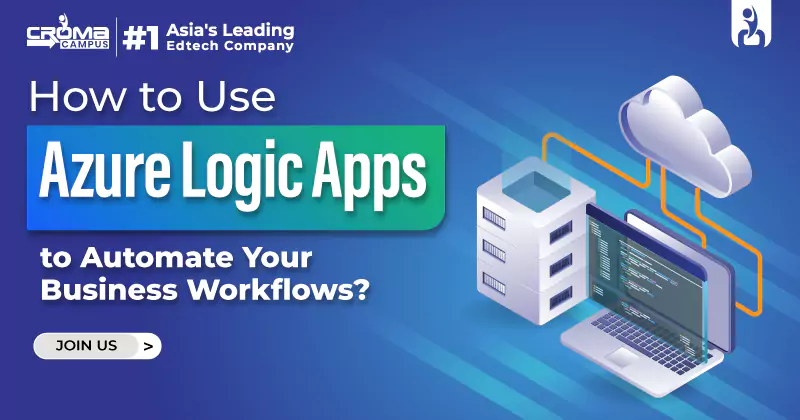
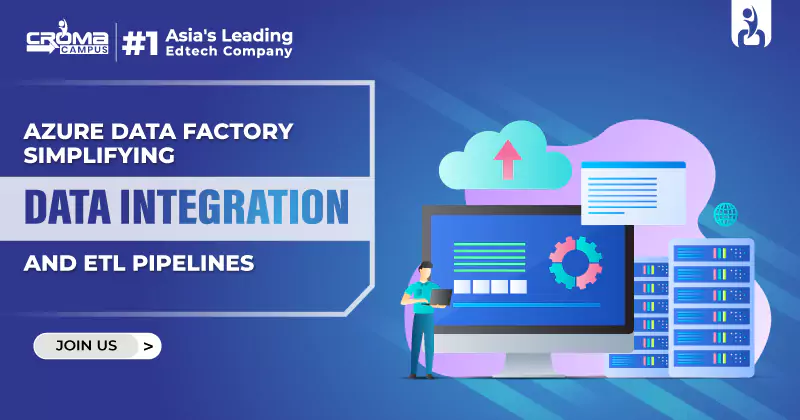


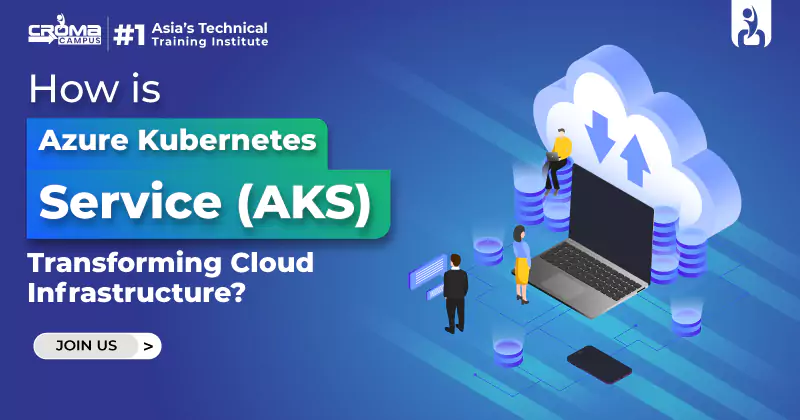
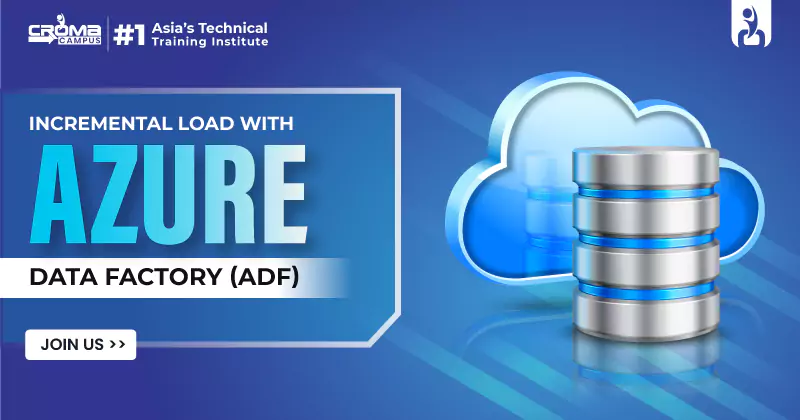
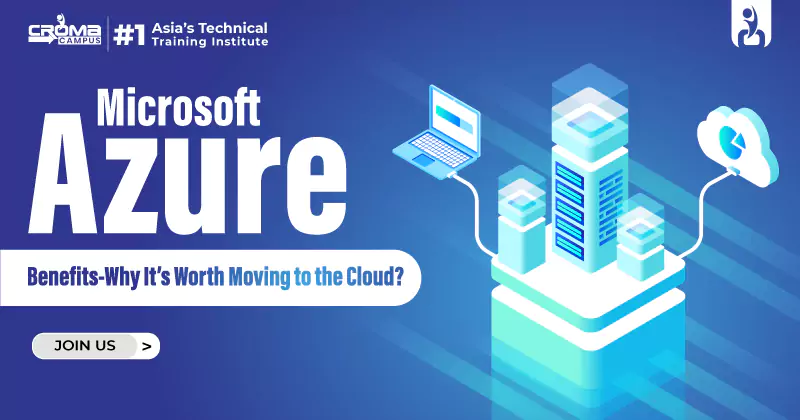
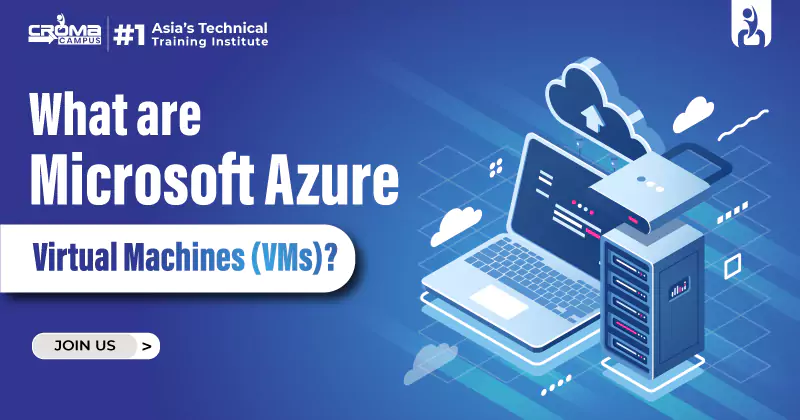
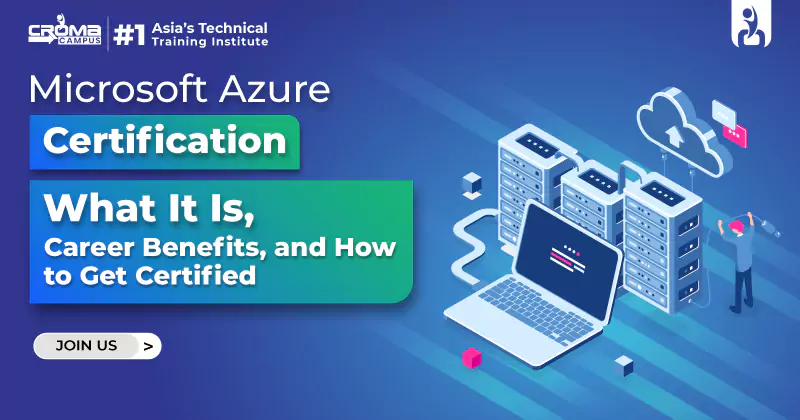
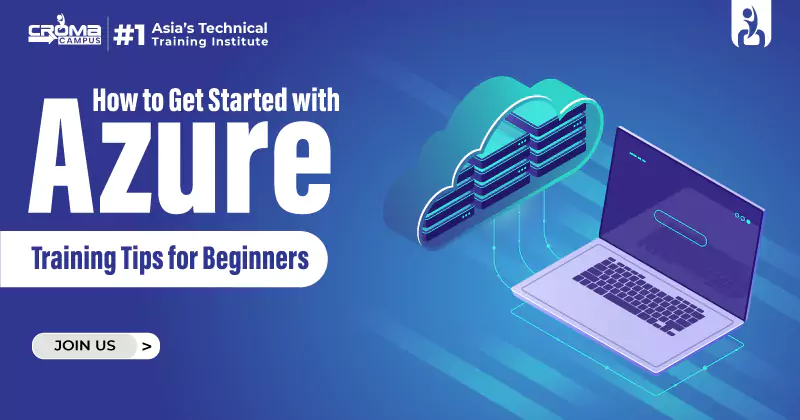
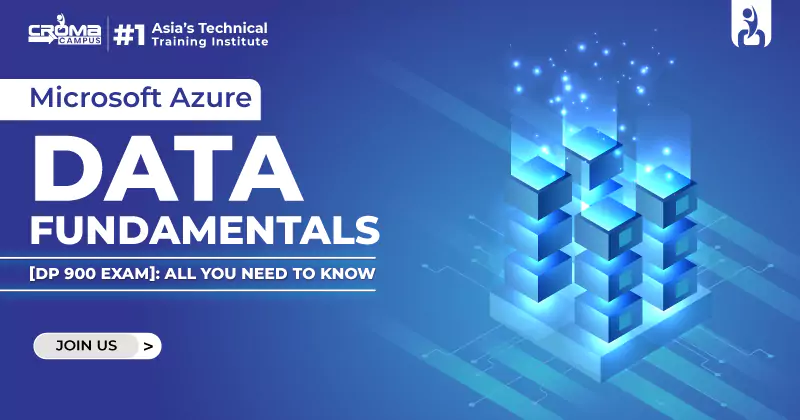
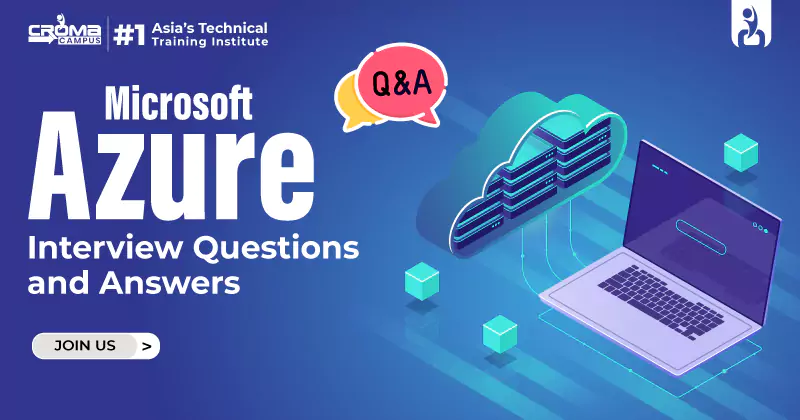










 Master in Cloud Computing Training
Master in Cloud Computing Training